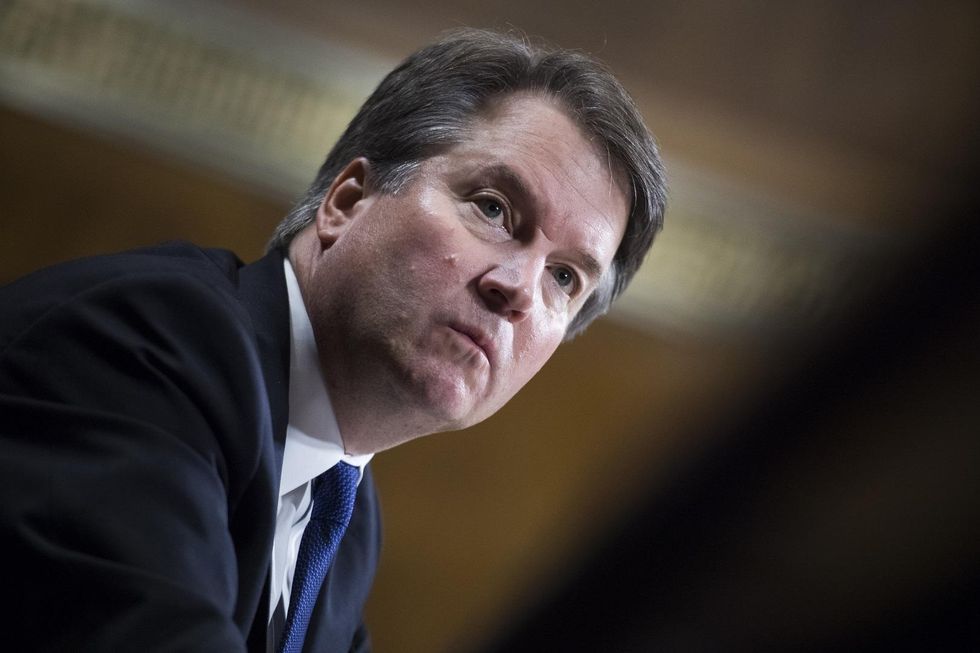
The FBI has completed its final investigation into Judge Brett Kavanaugh. The report focuses on allegations of sexual assault by Kavanaugh against college professor Christine Blasey Ford in 1982. (Tom Williams-Pool/Getty Images)

The White House has reviewed the report from the FBI's investigation into Supreme Court nominee Brett Kavanaugh and found no evidence of corroboration regarding the accusation of sexual misconduct, according to the Wall Street Journal.
Kavanaugh has been accused of sexual misconduct by college professor Christine Blasey Ford at a house party in 1982 and by Deborah Ramirez when they were both students at Yale University.
Citing “people familiar with the matter,” the Journal reported Thursday that the White House did not think that the FBI investigation supported any of the accusations against Kavanaugh.
Ultimately, regardless of what the White House determined, the final decision on how to interpret the FBI report lies with the Senate.
White House deputy press secretary Raj Shah tweeted at 2:24 a.m. Thursday that the White had had received the FBI's report, sent it to the Senate, and that they were “fully confident the Senate will vote to confirm Judge Kavanaugh to the Supreme Court.” In his tweeted statement, Shah did not indicate what the White House had concluded from the report, aside from it being “comprehensive.”
With McConnell’s cloture filing, senators have been given ample time to review this seventh background investigation. This is the last addition to the most comprehensive review of a Supreme Court nominee in history, which includes extensive hearings, multiple (2/3)
— Raj Shah (@RajShah45) October 4, 2018
committee interviews, over 1,200 questions for the record and over a half million pages of documents. With this additional information, the White House is fully confident the Senate will vote to confirm Judge Kavanaugh to the Supreme Court.” – White House Spokesman Raj Shah (3/3)
— Raj Shah (@RajShah45) October 4, 2018
Only senators and a small handful of Senate staffers will have access to the report.
To prevent leaks, the Senate received only a single, paper copy of the report, which is being kept in a secure room. Senators and nine Senate staffers are able to go into the room itself and view the report, but were not permitted to make copies. The report will not be made public.
Senate Judiciary Committee Chairman Chuck Grassley (R-Iowa) told reporters that he hoped keeping the pool of people who could read the report limited would make witnesses more likely to talk to the FBI.
“If you want people to be candid when they talk to the FBI, you ain't going to make that public,” he said.
This is a developing story and may be updated.